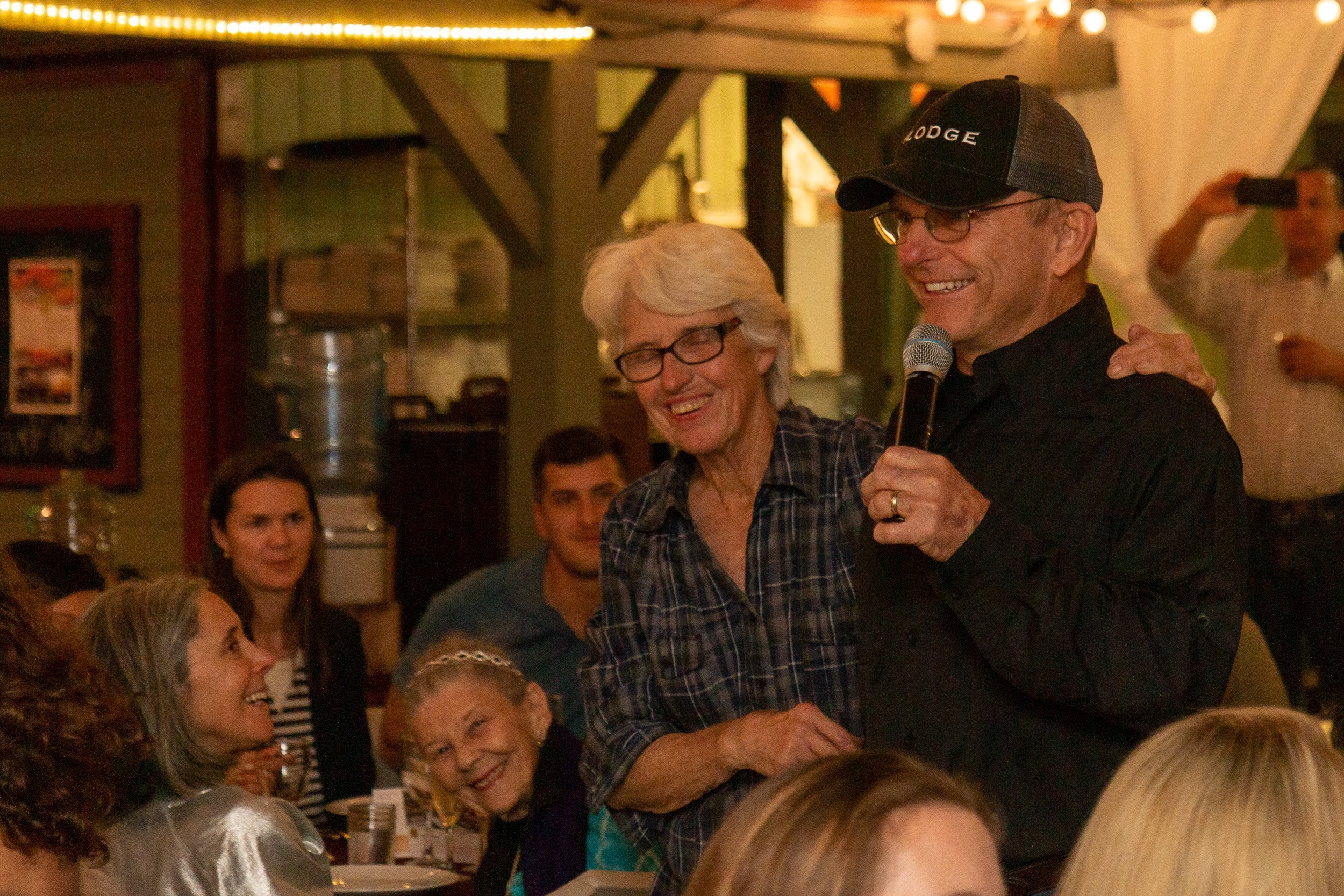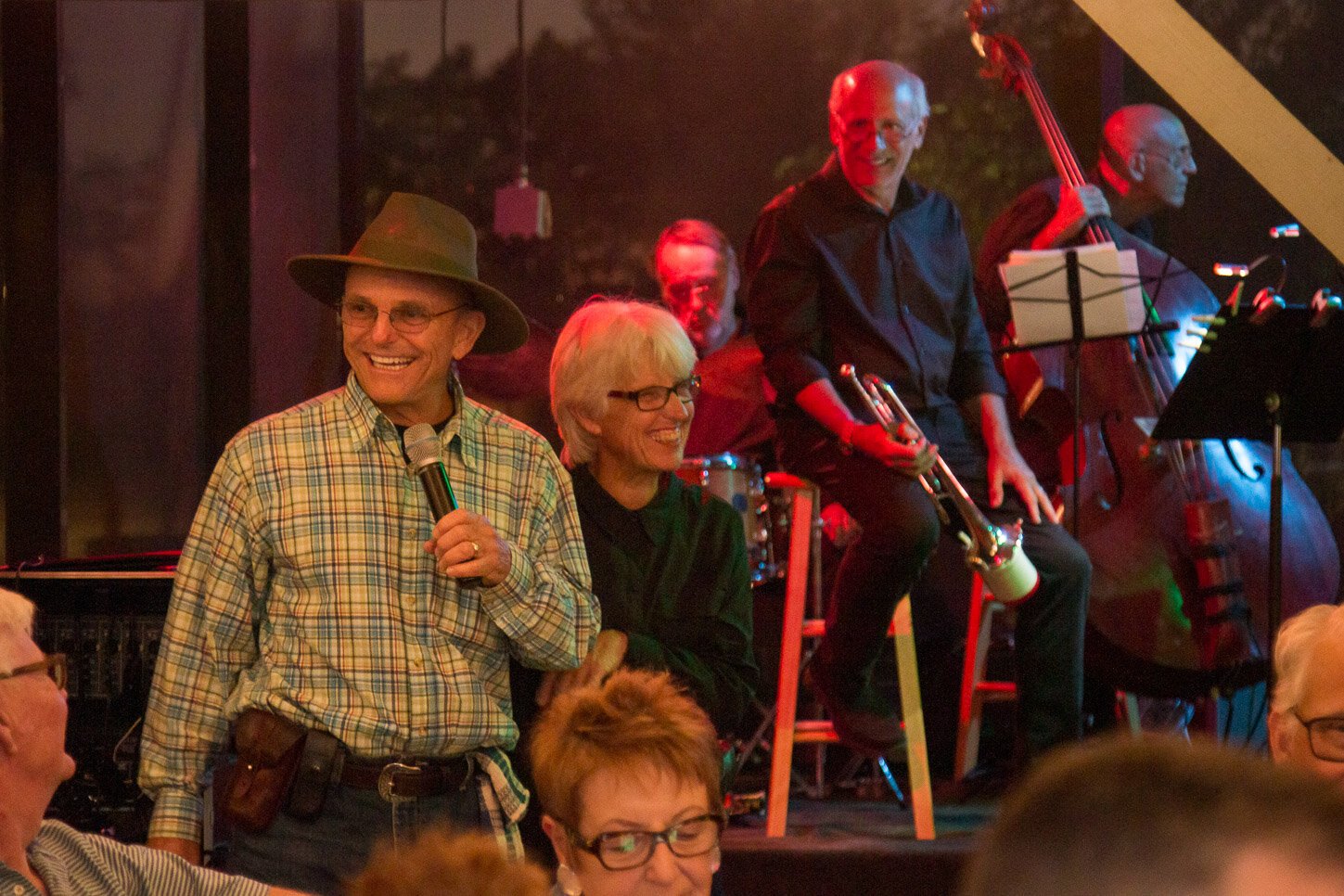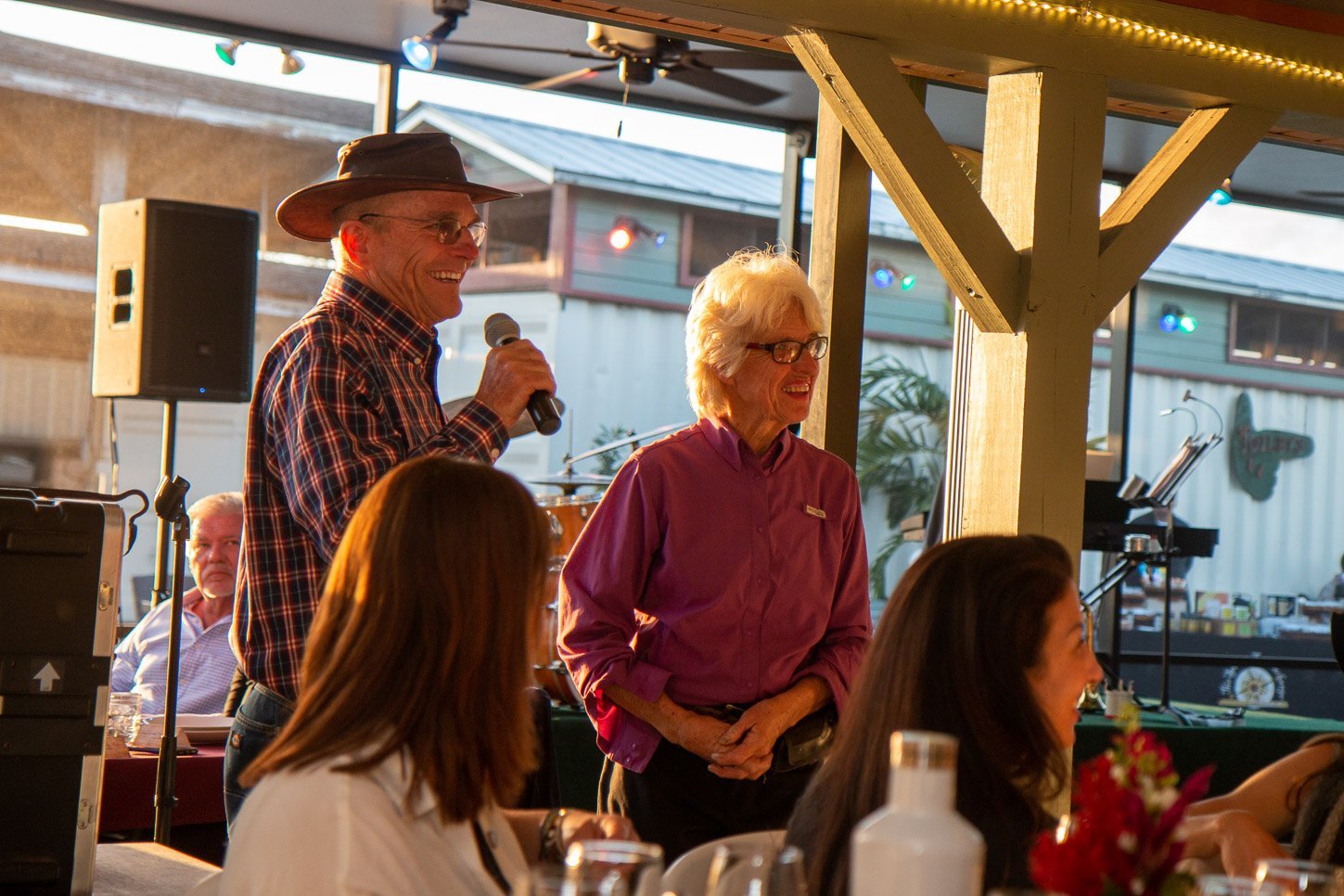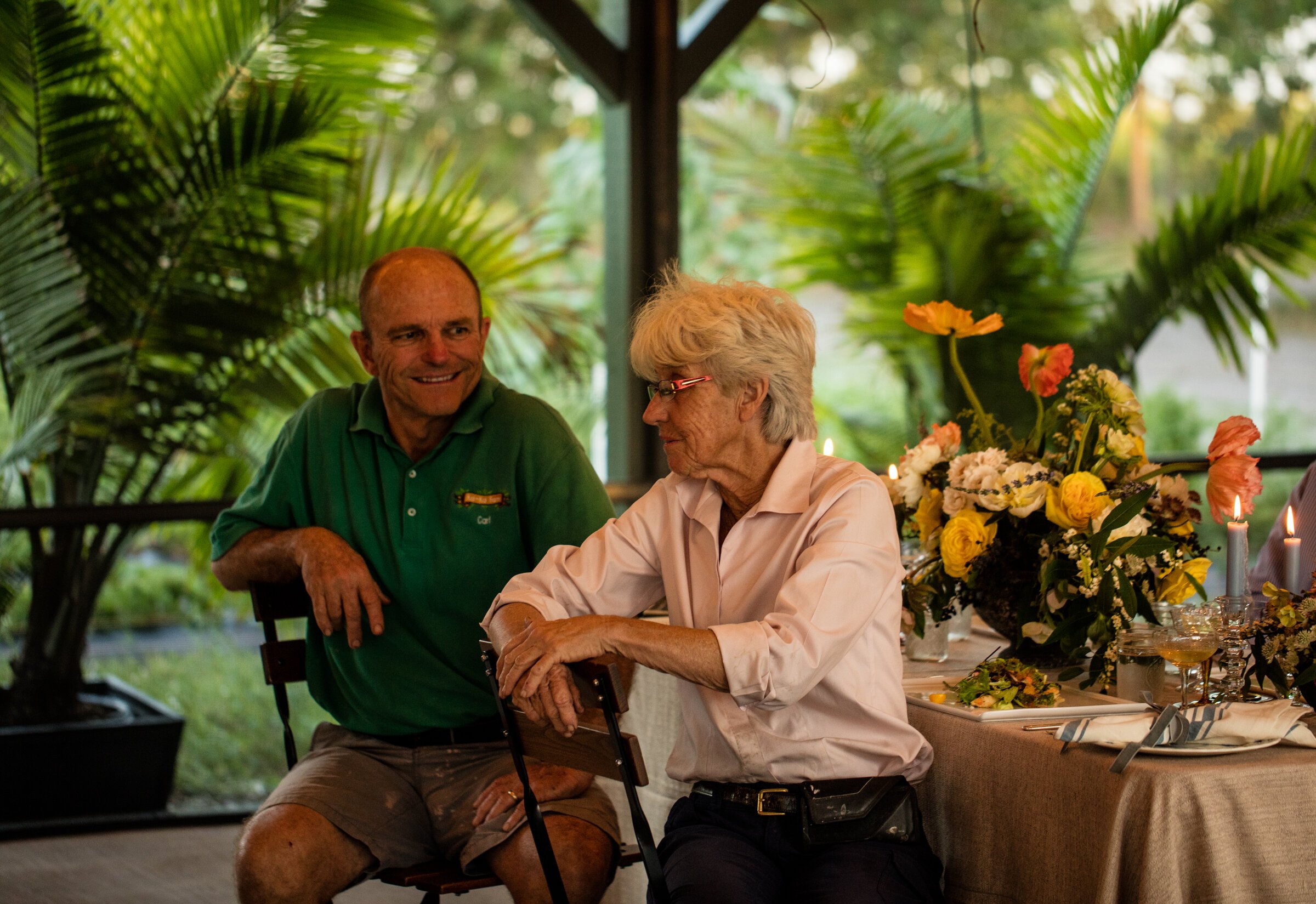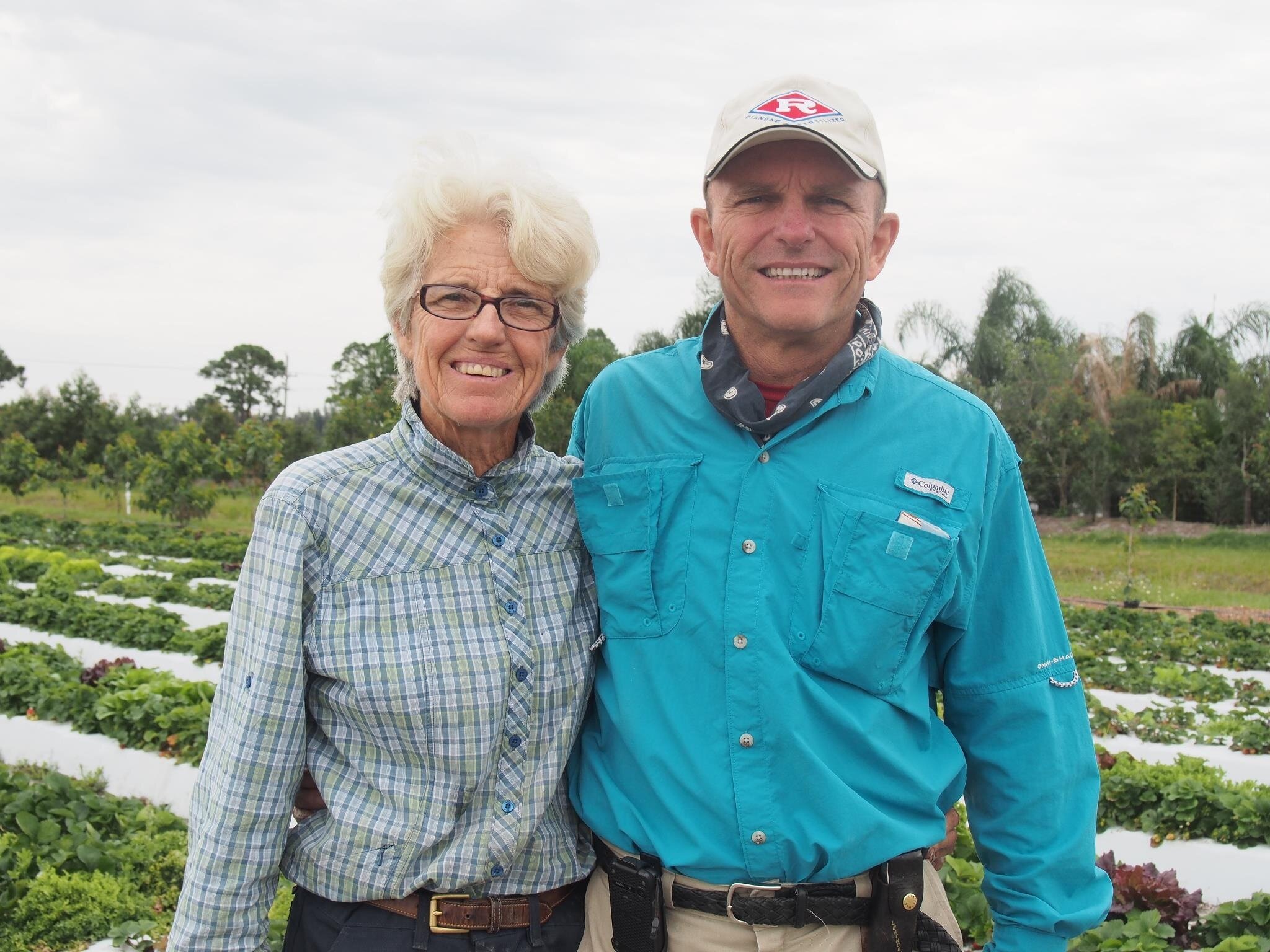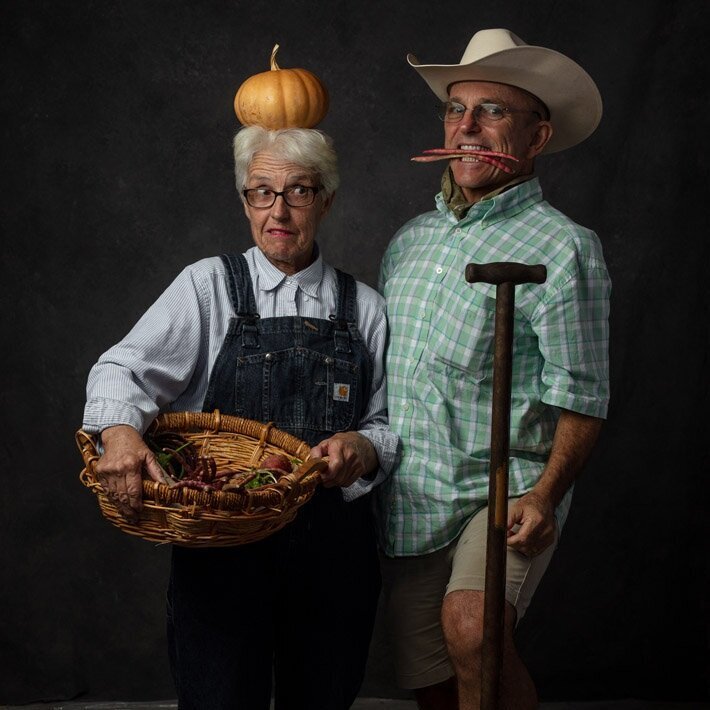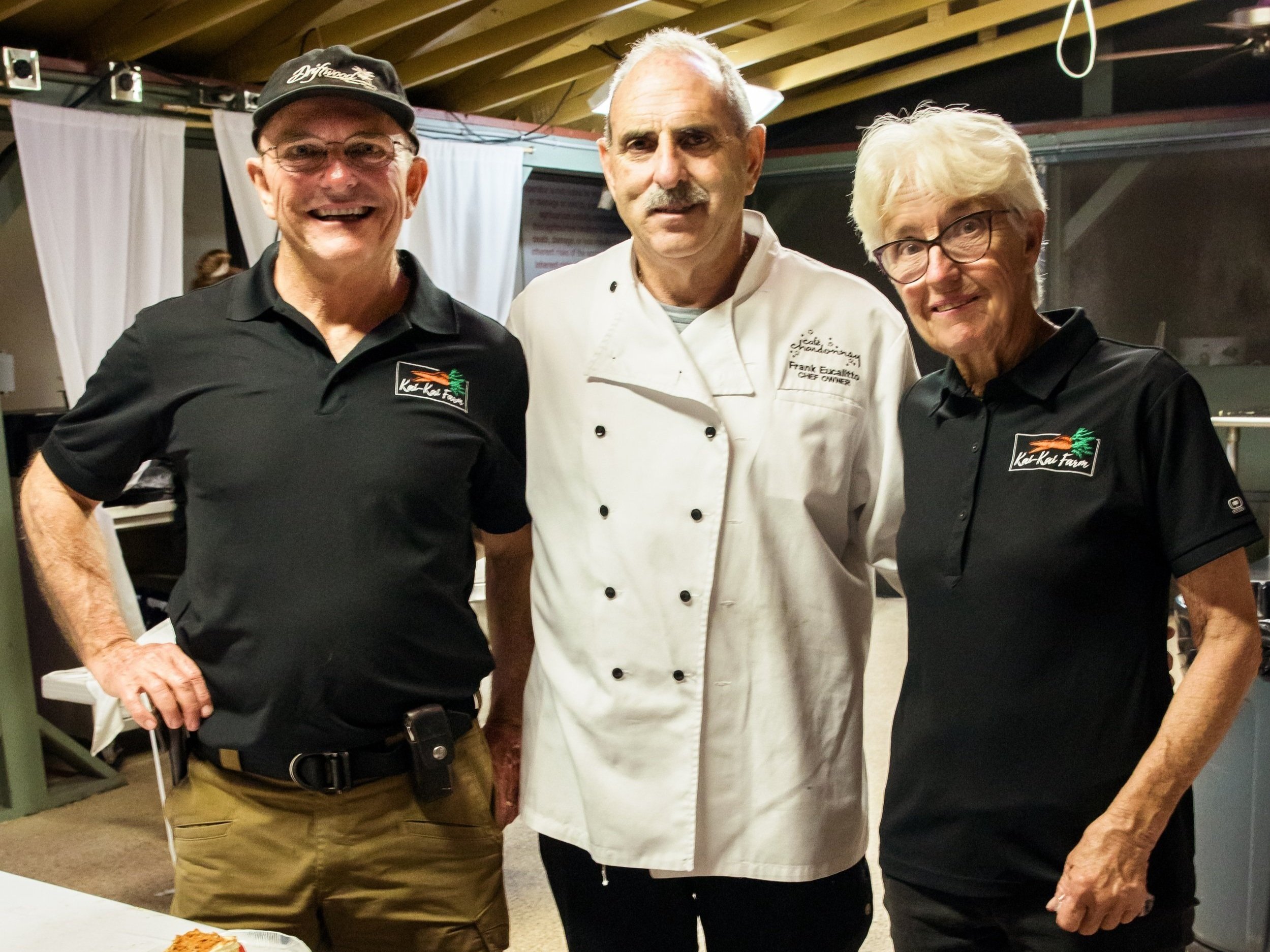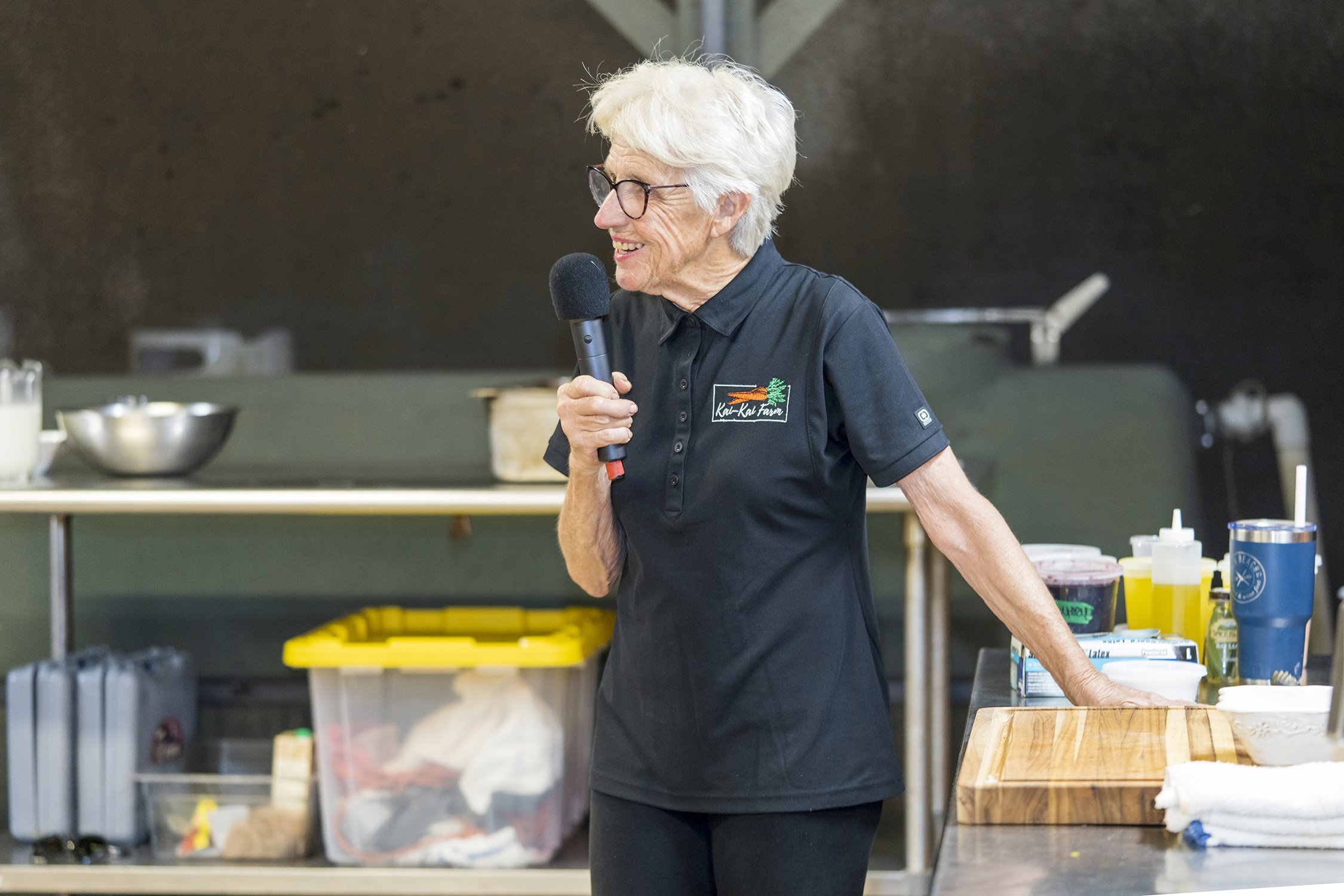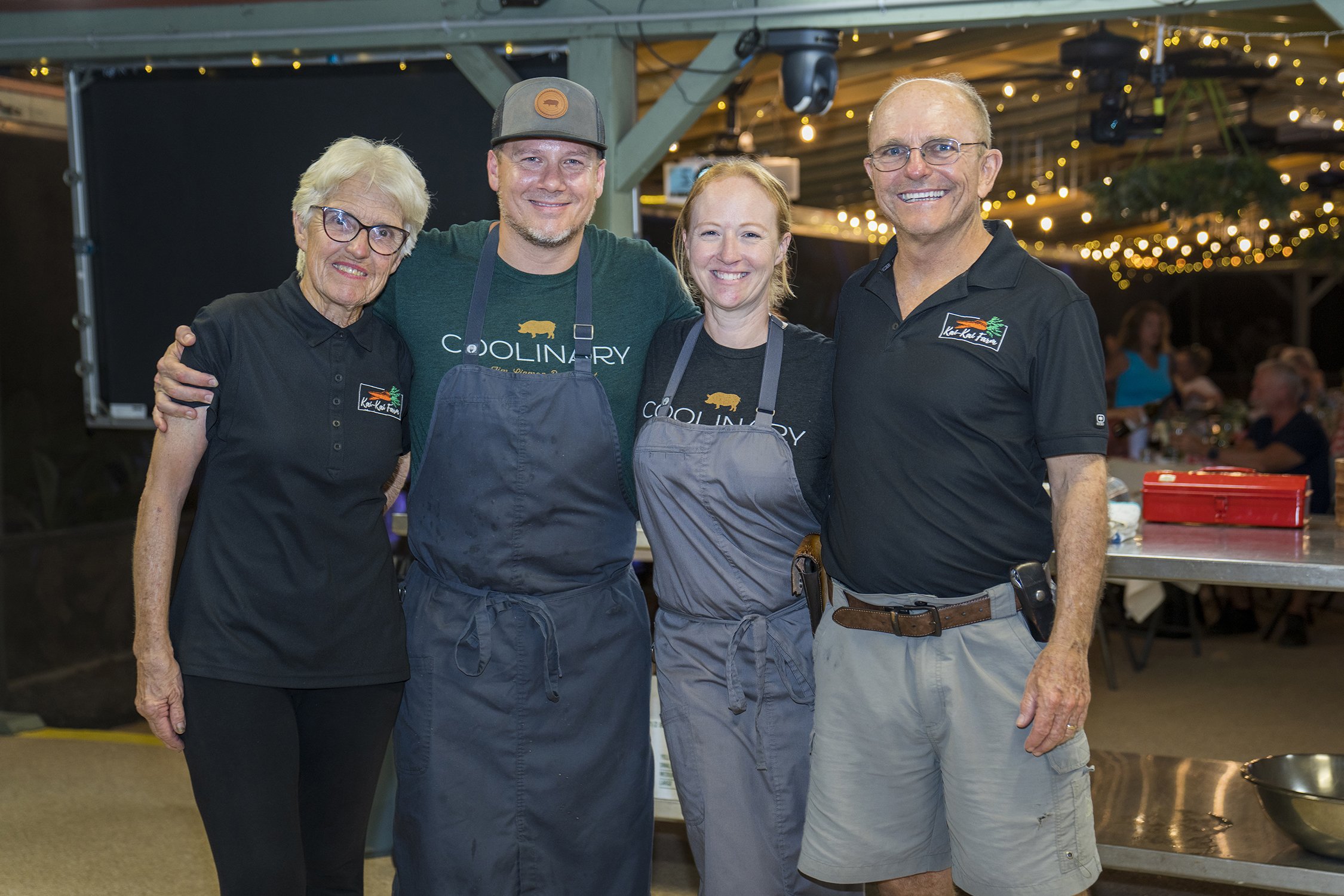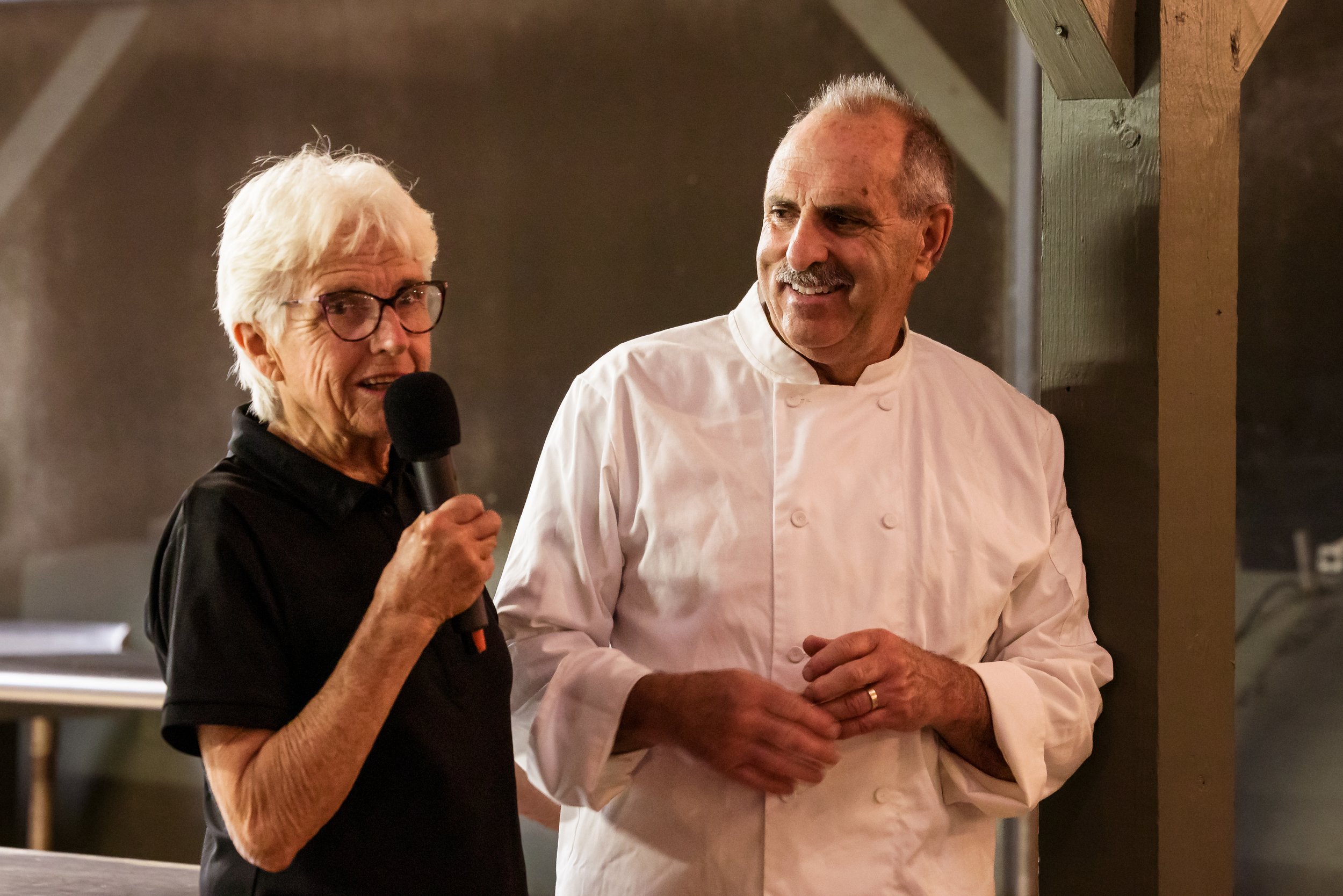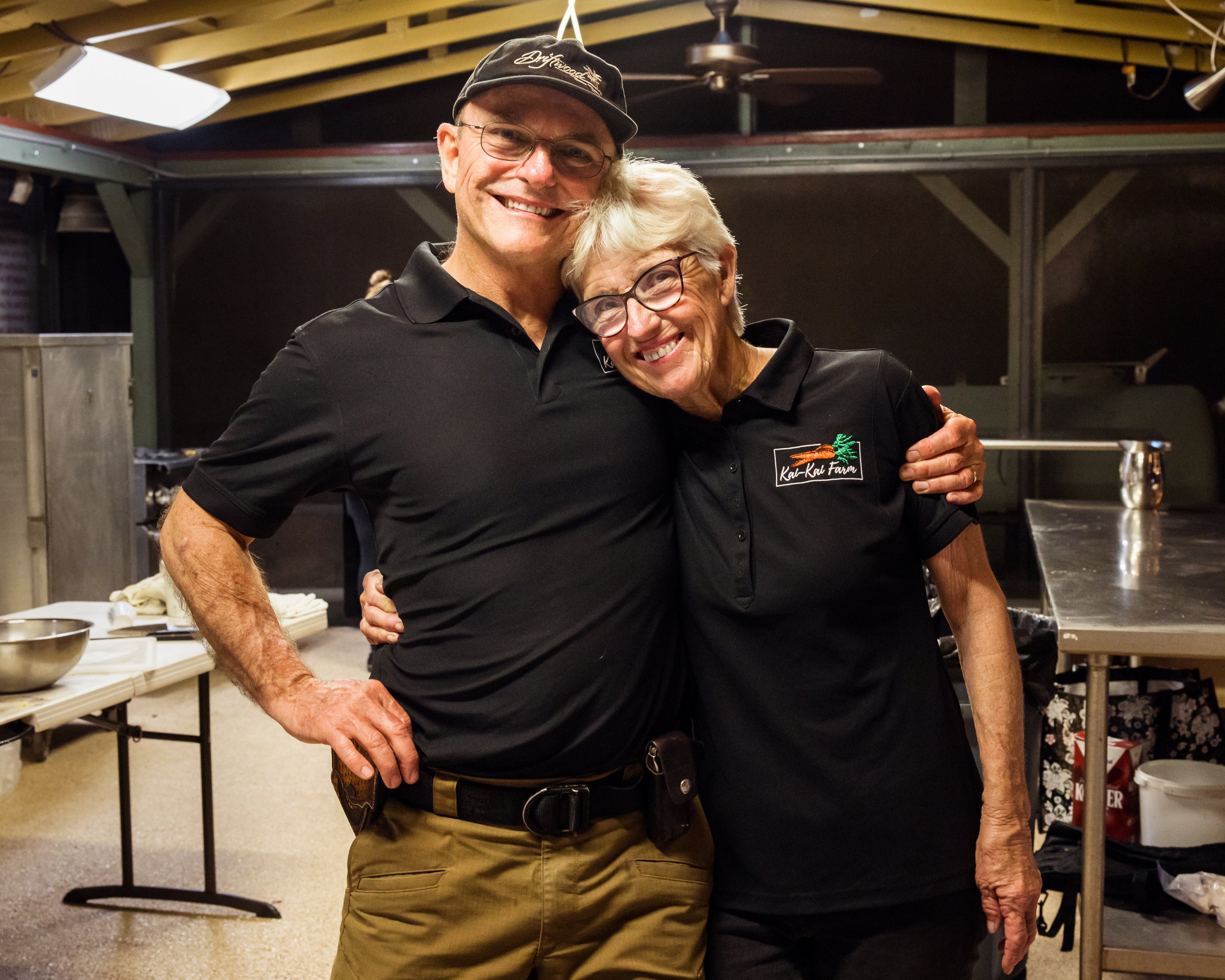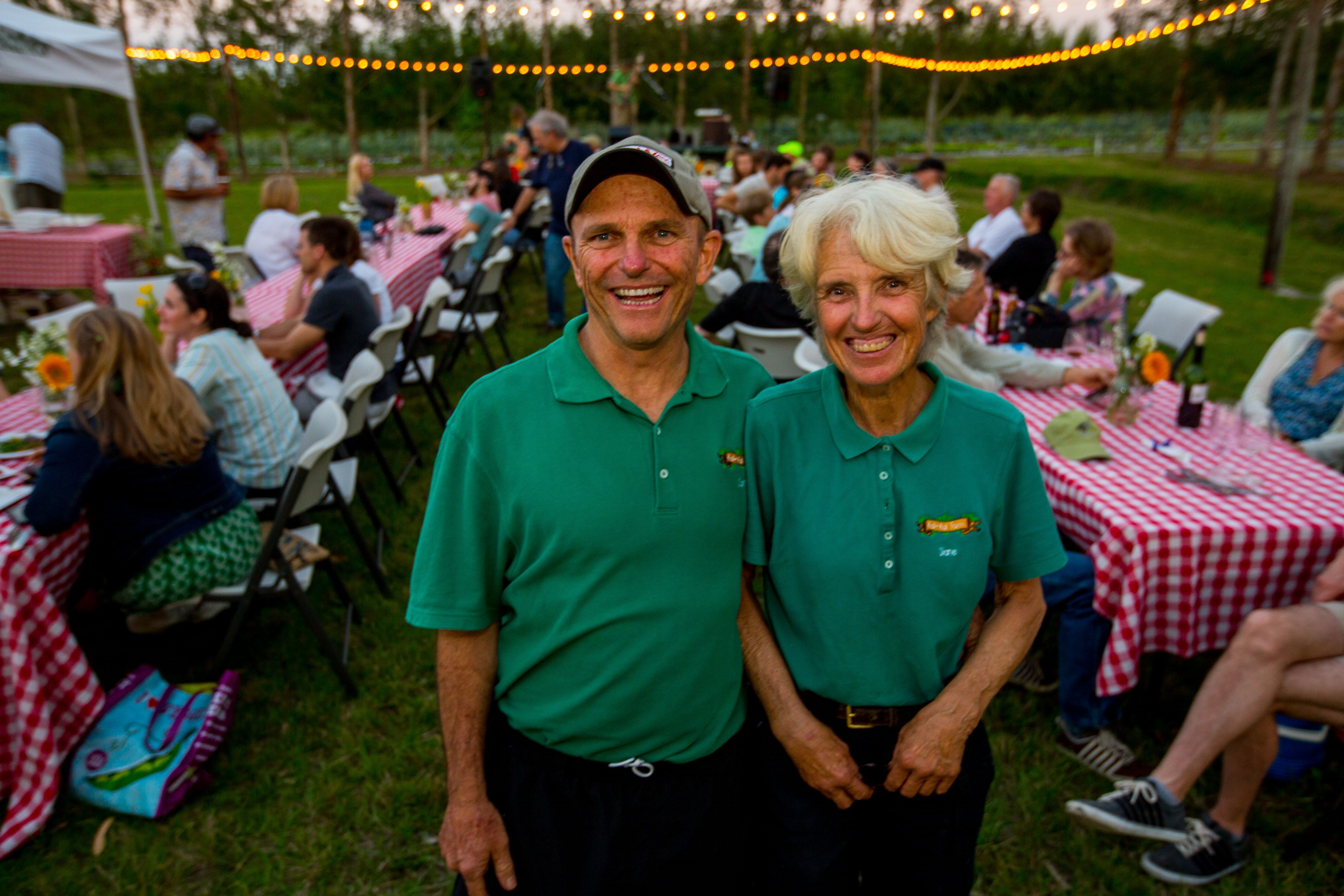
About the Owners, Carl and Diane
In 2003 Carl Frost and Diane Cordeau purchased a pair of 20-acre lots in the newly formed Box Ranch subdivision. Formerly a thriving citrus grove it succumbed to canker like all the other area groves, marking a turning point in Martin County FL agriculture. Carl saw an opportunity for a suburban location to grow vegetables and host food events by the nearby ranchette estate home communities being developed.
So where did the name “Kai-Kai” come from?
During the 1990’s the persistence and personalities of Carl and Diane were shaped by a ten-year 30,000-mile voyage on a 44-foot cutter-rig sailboat named Kama Lua. It was spartan yet functional - no air conditioning, no washer or dryer and no satellite phone. The crew was just Carl and Diane, with occasional friends helping on long Southern Pacific Ocean passages. They were now members of the South Pacific “cruiser” community—a tight knit collection of international sailors living aboard small vessels and scattered among the hundreds of destinations between French Polynesia and Papua New Guinea. Kama Lua generated power with solar panels, a wind turbine and towing propeller. The tiny diesel engine helped keep the refrigerator cold and power the Island Packet 44in and out of anchorages. Communications to civilization was via single-sideband HF radio and nightly roll calls from volunteers based in New Zealand and Australia.
Carl and Diane spent months in primitive regions of the Solomon Islands where some would call paradise but for the natives it was grinding poverty and persistent malaria. These villages on remote islands and atolls with names like Choiseul and Ontong Java had no running water nor electricity. Natives would dive for sea cucumbers and export them to Asia. money. Other “cruisers” were scarce as they preferred to dwell in more civilized destinations. Our crew dove for fish and traded merchandise for food. Life was tranquil with boat maintenance, food preparation, hosting visitors aboard and exploration consuming most of the time. Carl and Diane would anchor at remote villages in the Solomon Islands. An entourage of village elders, the chief and children would paddle dugout canoes to greet the sailors. After formalities an invitation would be given in Pidgeon English to have “Kai-Kai” which simply means to gather or share food. The farm’s name originated from the hard scrabble outer Solomon Islanders who depended upon subsistence gardening, fishing and some imported rice for meals. Today Carl and Diane still apply the same persistence and diligence that enabled them to prosper on a small sailboat in uncharted and unpredictable waters.
